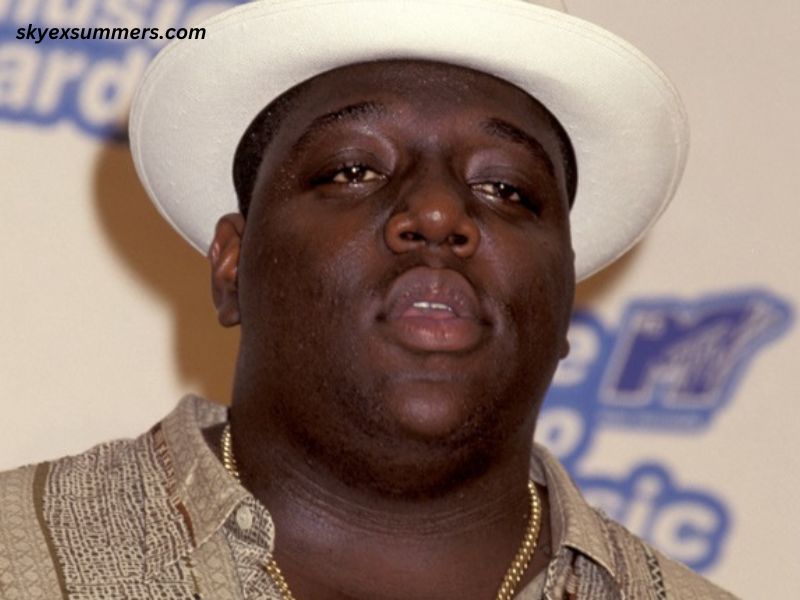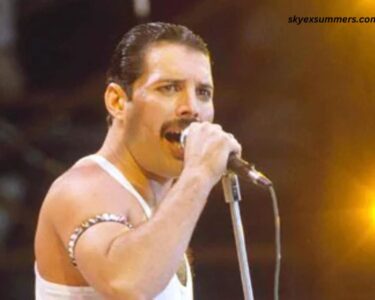Christopher Wallace, better known by his stage name The Notorious B.I.G. or Biggie Smalls, is regarded as one of the greatest rappers in the history of hip-hop. Despite his life being tragically cut short at the age of 24, Biggie’s impact on the music industry and pop culture is still deeply felt today. His timeless influence on rap music, storytelling, and lyricism has solidified his legacy as one of the most significant figures in music history.
As we look back on his life and career, many fans, especially those who were not yet born when Biggie was alive, wonder: How old would Biggie be today?
The Life and Legacy of The Notorious B.I.G.
Born on May 21, 1972, in Brooklyn, New York, Christopher Wallace grew up in a neighborhood that was not particularly known for its glamour. His early years were marked by hardship and struggle, but it was also in Brooklyn where Biggie’s musical journey began. After being introduced to the art of rapping as a teenager, he quickly made a name for himself in his community.
By the early 1990s, Biggie’s talent had earned him the attention of Sean “Puffy” Combs (now known as Diddy), who was at the time the head of Bad Boy Records. This partnership would prove to be a pivotal moment in both their careers, as it led to the release of Biggie’s debut album, Ready to Die, in 1994. The album would go on to redefine East Coast rap and was instrumental in popularizing hip-hop around the world.
Biggie’s ability to blend humor, bravado, and heartbreaking vulnerability in his lyrics made him stand out in the rap scene. Songs like “Juicy,” “Big Poppa,” and “One More Chance” became instant classics. His complex storytelling, which often involved tales of his life experiences in Brooklyn, resonated with fans from all walks of life.
Despite the enormous success, Biggie’s career was overshadowed by the infamous East Coast-West Coast rivalry in hip-hop. This rivalry, which pitted artists from the East Coast (including Biggie and Tupac Shakur) against their West Coast counterparts, led to a highly publicized feud that ultimately resulted in tragic consequences.
In 1997, Biggie Smalls was shot and killed in Los Angeles at the age of 24. His death, which remains unsolved, sparked years of speculation, documentaries, and debates within the hip-hop community about the circumstances surrounding it. Nonetheless, his music lives on, and his influence continues to inspire new generations of rappers and fans alike.
Would Biggie Be Today?
To answer the question of how old would Biggie be today, we need to look at the current year. As of 2024, the world would have celebrated the 52nd birthday of Christopher Wallace, who was born on May 21, 1972. Had he lived, he would have turned 52 years old this year.
While Biggie’s life was tragically short, it’s hard to imagine how his career might have evolved had he been able to grow older. Would he have continued to dominate the rap scene? Would he have transitioned into other forms of entertainment, like many other hip-hop moguls, such as Jay-Z and Diddy? It’s impossible to say for certain, but what is clear is that his influence on the music industry would still be profound.
Many hip-hop fans and historians have speculated on what Biggie’s legacy would have looked like in 2024. Some believe he would have continued making music and influencing new generations of artists, while others suggest that he might have followed in the footsteps of other legendary figures in music and entertainment, transitioning to acting or producing.
Biggie’s Influence Today
Even though Biggie passed away over two decades ago, his presence is still strongly felt in the music world. His influence can be heard in the work of current artists, from the lyricism of Kendrick Lamar to the storytelling abilities of J. Cole. The Notorious B.I.G.’s ability to weave intricate narratives into his music remains one of the defining aspects of his legacy.
Many modern artists cite Biggie as one of their biggest inspirations. His smooth flow, intricate wordplay, and fearless approach to storytelling set the standard for what it means to be a top-tier rapper. In fact, his debut album, Ready to Die, is often considered one of the greatest hip-hop albums of all time, a timeless piece of music that continues to be studied and revered by fans and artists alike.
In addition to influencing the sound of modern rap, Biggie’s impact extends to the broader cultural sphere. The “Notorious B.I.G.” brand is iconic, with his image appearing on everything from t-shirts to documentaries, even decades after his death. His fashion sense, particularly the oversized suits, sunglasses, and Coogi sweaters he was known for, remains a reference point in hip-hop fashion.
Moreover, the phrase “Biggie Smalls” has become synonymous with excellence in the hip-hop world, and his music continues to play an integral role in shaping the genre’s identity. Even younger generations of hip-hop artists, who may not have lived through Biggie’s prime, often pay homage to him in interviews and through musical references.
Biggie’s Unfinished Legacy
Biggie’s untimely death left the world wondering what else he could have achieved had he been given more time. His legacy, while immense, remains incomplete in many ways. For example, there was never a follow-up to Life After Death, his second album, which was released posthumously in 1997. This album, which is also regarded as one of his best works, features iconic tracks such as “Hypnotize” and “Mo Money Mo Problems.”
Had Biggie lived, it’s possible that he would have continued to redefine the sound of hip-hop in the late 1990s and 2000s, potentially collaborating with artists from different genres or exploring new musical avenues. Perhaps we would have seen him explore different kinds of creative expression, expanding beyond rap into business ventures, television, or even acting, as many of his peers did.
His passing also meant that he was unable to see the impact he had on the industry firsthand. The rise of hip-hop culture in the late ’90s and early 2000s, including the genre’s global expansion, would have been a fascinating era for Biggie to witness, knowing that his contributions had helped pave the way for future success.
How Would Biggie’s Music Evolve?
Biggie was known for his lyrical prowess, but he was also an innovator when it came to the beats and production choices that defined his music. His collaborations with producers like Sean “Puffy” Combs, DJ Premier, and Easy Mo Bee helped shape the sound of East Coast rap in the ’90s. Had Biggie lived to today, it’s likely that his music would have continued to evolve, embracing new genres and collaborations with contemporary artists.
The modern hip-hop landscape, dominated by trap beats and digital production, may have been an exciting challenge for a lyricist like Biggie, known for his intricate storytelling and strong delivery. He may have adapted to the sound of the times while still retaining his unique voice, a feat that many older artists struggle to accomplish.
Conclusion
So, how old would Biggie be today? In 2024, The Notorious B.I.G. would be 52 years old, but his legacy continues to live on in the world of hip-hop and beyond. Though his life was tragically short, Biggie Smalls’ influence on the rap genre and the larger cultural landscape is undeniable. His music, personality, and contributions to the art form continue to inspire new generations of fans and artists, solidifying his place as one of the greatest figures in the history of music.
Biggie’s legacy, however, remains incomplete. We will never know what more he could have achieved had he lived longer, but his impact on the world of hip-hop will never be forgotten. His music continues to resonate, proving that while the man may no longer be with us, his contributions will live on for generations to come.



